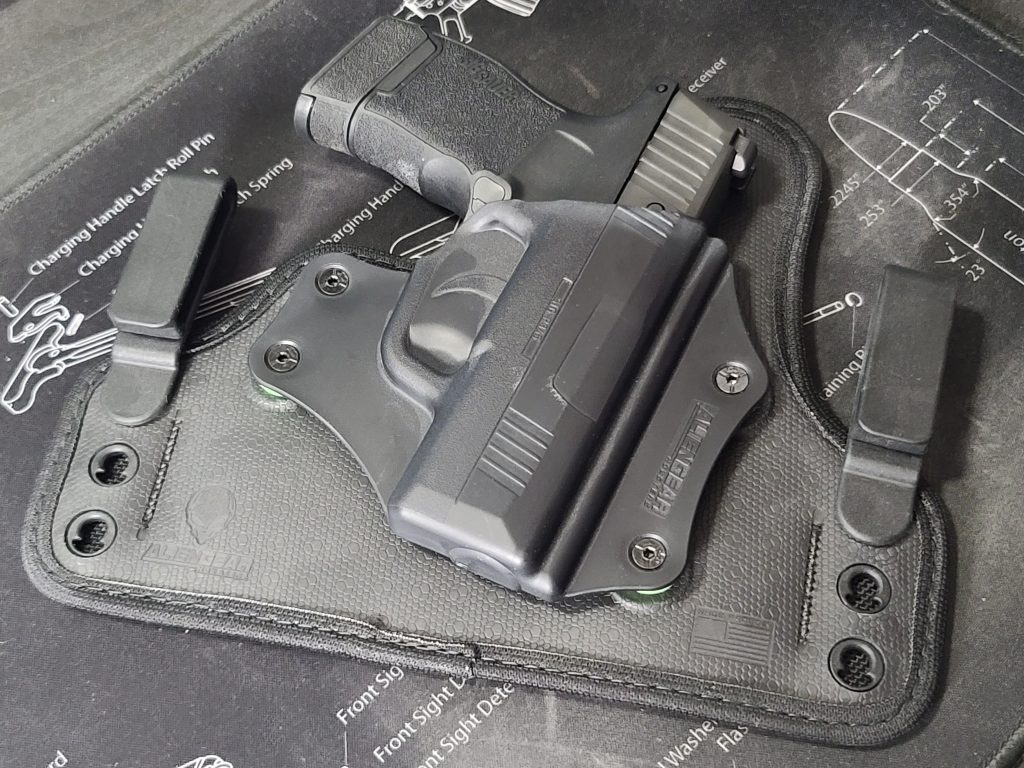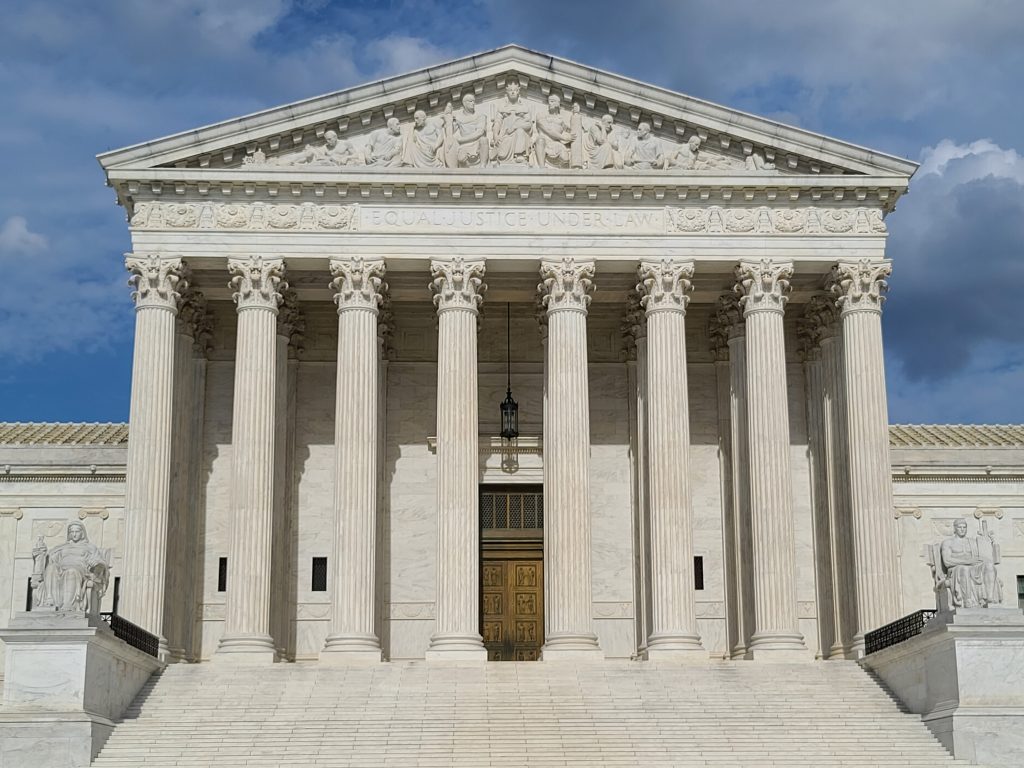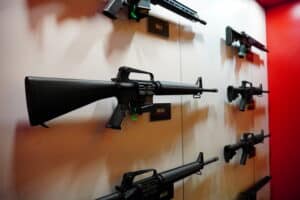The reaction to the Supreme Court’s landmark gun-carry ruling is in full swing.
States with affected laws are deciding whether to comply with the decision. And, even if they are complying on the surface, many are doubling down on restrictions that are fraternal, if not identical, twins with the one struck down by the Court.
Contributing Writer Jake Fogleman takes a broad look at how the six states named in the Court’s opinion are reacting.
Then I zero in on New York in particular. Their response is fascinating in that it feels as though it was designed to double down on all of the things the Court found objectionable. That means the state will likely find itself in legal trouble again in short order.
Plus, Laura E. Adkins gives us a personal look at her attempt to legally arm herself in New York City before and after Bruen.

Analysis: A Guide to How States Are Reacting to the Supreme Court Gun Carry Ruling [Member Exclusive]
By Jake Fogleman
After the Supreme Court ruled New York’s “proper cause” standard for issuing gun carry permits was unconstitutional last month, the half-dozen states with similar standards identified by the Court are starting to respond.
While some states were quick to renounce their respective “proper cause” standards, others have chosen to take a more antagonistic approach and add new restrictive standards designed to blunt the effect of the Court’s ruling. Still, others have chosen to do nothing at all, channeling former President Andrew Jackson who famously said, “John Marshall has made his decision, now let him enforce it” in defiance of a landmark Supreme Court decision.
Here’s a rundown of where affected states have chosen to stand following the New York State Rifle and Pistol Association v. Bruen decision.
New York
Despite being the jurisdiction at issue in the Supreme Court’s ruling, New York has chosen to take the antagonistic approach to SCOTUS after having its licensing regime deemed unconstitutional. The state did scrub its gun carry law of the “proper cause” requirement at issue in Bruen, but it promptly doubled down on the equally subjective “good moral character” standard that relies on multiple personal references and even a review of an applicant’s social media.
It also chose to take an expansive view of what constitutes a “sensitive place,” allowing many restrictions on where a permitted individual can carry. The new law deems all government property, health care facilities, churches, schools, public transportation, protest locations, and all of Times Square “sensitive places” where licensed carry is criminally prohibited.
It also renders all private businesses presumptively off-limits for gun carry unless a business owner explicitly authorizes licensed carry on the premises.
The new law seems destined for yet another legal rebuke from the federal court system.
California
The nation’s most populous state has a similar concealed carry law to New York’s now invalidated statute, requiring an applicant to show “good cause” in order to be granted a permit.
Shortly after the Bruen decision, California Attorney General Rob Bonta (D.) sent out a notice to law enforcement agencies across the state informing them of necessary changes to the state’s gun permitting system.
“Effective immediately, issuing authorities should no longer require proof of good cause for the issuance of a public-carry license,” Bonta wrote. “Issuing authorities may still inquire into an applicant’s reasons for desiring a license to the extent those reasons are relevant to other lawful considerations, but denial of a license for lack of ‘good cause’ now violates the Second and Fourteenth Amendments under the Supreme Court’s decision in Bruen.”
However, the state does not appear to be content with the status of its carry regime. A new bill expected to pass and be signed by Governor Gavin Newsom (D.) would add hurdles to the state’s permit application process and add a wide range of “sensitive places” off-limits to licensed carry.
The bill would deem lcarry illegal on “all school grounds, college and university campuses, government and judicial buildings, medical facilities, public transit, public parks, playgrounds, public demonstrations and any place where alcohol is sold,” according to CalMatters.
Hawaii
So far, Hawaii, a state with one of the most restrictive applications of a “good reason” standard for carry permits, has refused to make any new changes to its law. Immediately following the Bruen decision, the Attorney General’s office issued a statement denouncing the ruling while remaining cagey about any forthcoming changes.
“We profoundly disagree with this decision,” the statement said. “We will carefully examine this decision and consider if it will affect our laws, which were not at issue in the Supreme Court case today.”
Likewise, the Honolulu Police Department put out a similar statement following the ruling:
“We are currently reviewing the ruling and are in discussion with the other county police departments,” the police said. “The HPD’s firearms permitting procedures are unchanged at this time but will be evaluated in light of the ruling.”
Despite the state’s refusal to take any action adjusting its carry permitting system, the Supreme Court has taken additional steps in the interim that may force its hand. It issued a grant, vacate, and remand order for Young v. Hawaii, a Ninth Circuit case centered around a Hawaii resident seeking to carry a gun in public for self-defense. Prior to the Bruen decision, the Ninth Circuit ruled in Young that the Second Amendment did not protect a right to carry a gun outside the home whatsoever. Now that the court is being forced to reconsider the case in light of the decision in Bruen, Hawaii will likely be forced to make changes that will allow law-abiding residents to receive permits.
New Jersey
New Jersey was one of the fastest moving states to bring its statute in compliance with the Bruen ruling. The day after the Court handed down its decision in the case, Attorney General Matthew Platkin (D.) issued a directive to law enforcement officials across the state informing them that the state’s “justifiable need” provision may no longer be enforced.
The state has since signed several additional gun-control bills but did not target carry rights directly.
Maryland
Governor Larry Hogan (R.) announced on Tuesday that he was directing state law enforcement agencies to comply with the Supreme Court’s ruling in Bruen by ending the state’s “good reason” requirement for permit issuance.
“Last month, the U.S. Supreme Court struck down a provision in New York law pertaining to handgun permitting that is virtually indistinguishable from Maryland law,” Hogan said in a press release. “In light of the ruling and to ensure compliance with the Constitution, I am directing the Maryland State Police to immediately suspend utilization of the ‘good and substantial reason’ standard when reviewing applications for Wear and Carry Permits. It would be unconstitutional to continue enforcing this provision in state law.”
The move is expected to dramatically increase the number of carry permits issued in the state, and demand for permits has already started to spike.
Massachusetts
Attorney General Maura Healey (D.) released a legal advisory last Friday to clarify how the state’s permitting system will change following the Supreme Court’s ruling.
“In light of Bruen’s holding that New York’s ‘proper cause’ requirement violates the Second and Fourteenth Amendments, licensing authorities should no longer enforce the… ‘good reason’ aspect of the license-to-carry statute, under which the applicant must identify a reason or reasons for obtaining a license, and the licensing authority may restrict the license upon determining that the applicant lacks a sufficiently good reason to fear injury to person or property,” Healey wrote.
However, Healey said determinations for granting licenses can still be made based on the “suitability” of a particular applicant.
“Licensing authorities also can and should continue to enforce the ‘prohibited person’ and the ‘suitability’ elements of the license-to-carry statute,” she wrote.
Suitability is determined based on whether or not “reliable and credible information” shows an applicant to be a risk to public safety.
Gun-rights groups in the state have compared this component to the invalidated “good reason” standard. The groups have demanded that the suitability requirement be retracted as well.
Even though five of the six states directly named in Bruen have taken steps to remove their “proper cause” requirements, it remains to be seen what the practical impacts will be for gun owners in each respective state. Further litigation is also quite likely, particularly in states like New York and California that proceed to take expansive views on location restrictions and application requirements as a substitute for discretionary permit issuing.
But, in the meantime, it appears that subjective “good cause” standards have been all but relegated to the dustbins of history.
Podcast: A Liberal New Yorker Explains Why She Wants a Gun [Member Early Access]
By Stephen Gutowski
This week we’re starting to examine the real-world effects of the Supreme Court’s Bruen decision.
With New York’s restrictive gun-carry law being struck down, more people will actually be able to carry in the state. So, it’s essential to understand who some of those people are and why they want to carry in the first place. That’s why we have Laura E. Adkins on the show.
Adkins recently wrote an opinion piece for The New York Times on her desire to arm herself.
As a single woman living in New York City, she doesn’t always feel totally secure. She described a fatal shooting of another woman nearby her home as one reason why. Police response times are another.
Beyond basic safety concerns, though, Adkins said a recent relationship ended poorly, and she now feels increasingly threatened by her former partner. She obtained a restraining order but was told she likely wouldn’t qualify for a carry permit under the now-defunct law.
Adkins said she is hopeful the Supreme Court’s ruling will mean she can obtain one soon. But she also recognized the new restrictions New York officials implemented in response to the decision will limit her options even if she does get a permit.
Plus, Contributing Writer Jake Fogelman and I discuss the Congressional reaction to the July 4th mass shooting.
You can listen to the show on your favorite podcasting app or by clicking here.
Video of the episode is also available on our YouTube channel.

Analysis: New York Tells Supreme Court’ Thank You, Sir. May I Have Another?’ [Member Exclusive]
By Stephen Gutowski
New York has made a return appointment for Constitutional scrutiny of their gun-carry laws.
Almost immediately after the Supreme Court struck down the state’s previous law over the subjective nature of its “proper cause” clause, New York is back with a beefed-up and even more subjective “good moral character” clause. In addition to requiring multiple references, the newly-passed standard for issuing gun-carry permits includes a social media review. Instead of relying on objective standards, such as an applicant’s record of convictions or mental health commitments, the state is doubling down on the subjective judgment of its permitting officials.
Instead of judging whether somebody has “proper cause” to carry a gun based on specific threats to their life, state officials will now judge whether or not they are of “good moral character” based on their tweets and Facebook posts. It’s difficult to see how the outcome will be any different.
It’s difficult to see how the legal fight will be any different either. Except, perhaps, how quickly New York loses.
New York is defying the Supreme Court. And it’s not trying to hide that fact.
“With this action, New York has sent a message to the rest of the country that we will not stand idly by and let the Supreme Court reverse years of sensible gun regulations,” Lieutenant Governor Antonio Delgado said in a statement.
New York doesn’t keep statistics on how many gun-carry permits it issues, and estimates vary significantly. The 2021 Crime Prevention Research Center (CRPC) estimate, which is the highest I’ve seen, puts the number at about 195,000 active permits. The same estimate shows its neighbor Pennsylvania, which doesn’t use a subjective “good reason” standard for issuing permits, has over 1,400,000. Florida has over 2,500,000.
CRPC found about ten percent of the population have permits in states that don’t have the unconstitutional “good reason” clause. If New York issued permits at that rate, it would have more than 1,900,000–a tenfold increase.
The Supreme Court clearly intends for the state to come in line with the rest of the country on that front.
“New York is not alone in requiring a permit to carry a handgun in public,” the Court said of New York’s outlier regulations. “But the vast majority of States—43 by our count—are ‘shall issue’ jurisdictions, where authorities must issue concealed-carry licenses whenever applicants satisfy certain threshold requirements, without granting licensing officials discretion to deny licenses based on a perceived lack of need or suitability.”
But New York’s politicians are poised to fight against that eventuality for as long as possible. In fact, they’ve now broadened the battle by passing new restrictions on where those who do get licensed can actually carry. While setting up another showdown over the restrictive nature of their licensing requirements they’ve set up a new one over the restrictive nature of their prohibitions on carrying in “sensitive places.”
Not only does the new law include common prohibitions on guns in areas such as stadiums and courthouses, it makes all businesses presumptively off-limits and requires owners to post signs if they want to allow people to carry inside. It also makes the entirety of Times Square a gun-free zone.
When asked by reporters where permit holders would actually be able to legally carry, Governor Kathy Hochul (D.) responded “probably some streets.”
This is another regulation that seems almost designed to be struck down. The Court directly addressed the idea of “sensitive places” exceptions for gun carry in its ruling. And it made it quite clear a government could not simply designate nearly everywhere a “sensitive place.”
“[E]xpanding the category of ‘sensitive places’ simply to all places of public congregation that are not isolated from law enforcement defines the category of ‘sensitive places’ far too broadly,” the Court wrote. “Respondents’ argument would in effect exempt cities from the Second Amendment and would eviscerate the general right to publicly carry arms for self-defense that we discuss in detail below. Put simply, there is no historical basis for New York to effectively declare the island of Manhattan a ‘sensitive place’ simply because it is crowded and protected generally by the New York City Police Department.”
It’s unlikely the Court would take a different view for effectively declaring the island of Manhattan *except for some public streets* a “sensitive place.” But the entire legislative package in response to the Court’s ruling appears intended to poke the institution in the eye. That includes the express reasoning from Governor Hochul’s press release on why these laws were passed at all.
“Today’s legislative package furthers the State’s compelling interest in preventing death and injury by firearms,” the release said.
Of course, this too flies directly in the face of how the Supreme Court said gun laws would be judged.
“To justify its regulation, the government may not simply posit that the regulation promotes an important interest,” the Court said. “Rather, the government must demonstrate that the regulation is consistent with this Nation’s historical tradition of firearm regulation. Only if a firearm regulation is consistent with this Nation’s historical tradition may a court conclude that the individual’s conduct falls outside the Second Amendment’s ‘unqualified command.'”
None of this means that there aren’t ways in which New York could impose stricter regulations on gun carry than what states including Pennsylvania and Florida have done. Second Amendment jurisprudence is still in its infancy and “sensitive places” exceptions or the limits of objective training and background check standards are not fully fleshed out.
The problem for New York is it appears to have immediately jumped to the least-defensible position in all those areas at the exact same time. The Court gave a significant amount of guidance on what it believes are constitutional restrictions of gun carry, and they don’t align with what New York is pursuing.
“The Second Amendment guaranteed to ‘all Americans’ the right to bear commonly used arms in public subject to certain reasonable, well-defined restrictions,” the Court wrote. “Those restrictions, for example, limited the intent for which one could carry arms, the manner by which one carried arms, or the exceptional circumstances under which one could not carry arms, such as before justices of the peace and other government officials. Apart from a few late-19thcentury outlier jurisdictions, American governments simply have not broadly prohibited the public carry of commonly used firearms for personal defense. Nor, subject to a few late-in-time outliers, have American governments required law-abiding, responsible citizens to ‘demonstrate a special need for self-protection distinguishable from that of the general community’ in order to carry arms in public.”
The politics of losing again and again in court over attempts to restrict guns may not be catastrophic for the politicians pushing these laws as it hasn’t for leaders of other deep-blue areas in the past. But it may well result in even more unfavorable precedents for gun-control advocates.
That’s it for now.
I’ll talk to you all again soon.
Thanks,
Stephen Gutowski
Founder
The Reload






